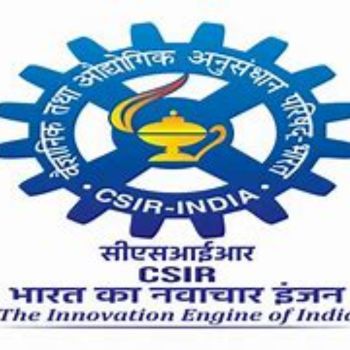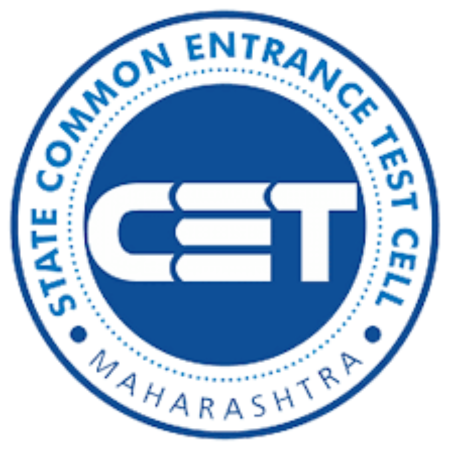Ph D Orthodontics is a 3-6-year research-centered program designed for dental professionals interested in advancing knowledge in tooth alignment, craniofacial growth, and treatment technologies. It includes special areas such as biomechanics, malocclusion management, interceptive orthodontics, and digital orthodontic tools.
Usually, a candidate requires a Master of Dental Surgery (MDS) or related expertise in orthodontics, with a minimum 55% of marks, to pursue this course. Admission usually includes a national or university-level entrance examination, a personal interview and submission of a research proposal. Clinical experience and academic interest are often preferred in orthodontics.
Some of the institutions, such as Manav Rachna Vidyanatariksha, SGT University, and Sankalchand Patel University (SPU) offer a Ph D Orthodontics program. The curriculum includes a few topics like Stages of child development, Etiology and classification of malocclusion, Structure and function of all anatomic components of occlusion, Evolution of orthodontic appliances, and many more.
A candidate with a Ph D Orthodontics can pursue careers as an Orthodontist, Dental Surgeon, Dentist Consultant, or Assistant Professor. Candidates can work with the universities, hospitals, or research foundations, contributing innovations to the dental science and community dental programs. Salary may vary from INR 1 to 11 LPA, which is based on experience, expertise, and the nature of the institution.
Table of Contents
- Ph D Orthodontics Key Highlights
- What is Ph D Orthodontics?
- Why Study Ph D Orthodontics?
- Who Should Pursue Ph D Orthodontics?
- Ph D Orthodontics Eligibility Criteria
- Ph D Orthodontics Entrance Exams 2025
- Ph D Orthodontics Colleges in India
- Ph D Orthodontics Admission Process 2025
- Ph D Orthodontics Syllabus
- Ph D Orthodontics Job Opportunities in India
- Ph D Orthodontics vs Ph D Dentistry
- Ph D Orthodontics FAQs
Ph D Orthodontics Key Highlights
Below are the key highlights of the Ph D Orthodontic course:
What is Ph D Orthodontics?
Ph D Orthodontics is a degree of advanced research that deepens into the science behind the movement of teeth, growth of the jaw and facial development. It focuses on solving complex orthodontic problems using clinical research, biomechanics, and modern treatment innovations like aligners and digital planning.
This program is ideal for dental experts who want to detect new techniques, want to improve treatment results, and contribute to educational knowledge. Along with a strong focus on malocclusion major dental issue among Indian children, also supports public health efforts and policy-making in oral healthcare.
Also, read Ph.D in Paramedical
Why Study Ph D Orthodontics?
Ph D Orthodontics is a clinical research program based on craniofacial growth, biomechanics and advanced orthodontic treatment methods. It is ideal for professionals who are passionate for innovating in malocclusion management, contributing to educational dental and influencing child oral health policies and conservative technologies.
Some of the reasons why study Ph D Orthodontics are as follows:
- Explore the genetics of Malocclusion: Highlight that genes affect the development of the jaw and teeth, which pave the way for future and preventive treatment.
- Shape the digital orthodontics: AI-driven treatment plan, virtual simulation and lead innovation in distance monitoring equipment for orthodontic care.
- Malocclusion- The second most common dental disorder among Indian school children (12.5% to 33.3%) - where national attention is required. A Ph.D. lets candidates contribute to initiatives like the Indian Orthodontic Society's "Smiling Bharat" by driving data-based policy, awareness, and early intervention programs.
- Influence clinical protocol worldwide: Research findings from the thesis can determine new standards and affect evidence-based guidelines in the orthodontic practice.
- Advanced craniofacial research development: Study age-specific bone development and design interventions that address the issues during critical growth windows.
Who Should Pursue Ph D Orthodontics?
A Ph D Orthodontics is a research-based program focused on dental alignment, craniofacial development, and orthodontic treatment innovations. It prepares scholars for careers in academics, clinical research, and dental technology development.
Below are a few pointers related to the best-fit candidates who should pursue a Ph D Orthodontics:
- Innovative thinker: Candidates who enjoy exploring the latest techniques in teeth movement, alignment, and treatment planning beyond regular clinical work.
- Research enthusiast: Ideal for those who are passionate about scientific discovery, data analysis, and publishing impactful conclusions in dental science.
- Aspirational academicians: It is perfect for those with the aim of teaching in top dental colleges and guiding the next generation of orthodontists through research.
- Future leader in dentistry: This program is suitable for those individuals who want to influence policy, lead the dental councils, or determine the clinical guidelines in orthodontics.
- Professional: A Ph D Orthodontics program is perfect for those who can patiently analyze the craniofacial growth patterns and long-term treatment impacts.
Ph D Orthodontics Eligibility Criteria
To pursue the Ph.D. D Orthodontics, the applicant needs to meet certain criteria, without which admission into this course may be difficult. Mentioned below are the eligibility criteria for pursuing an Ph.D. D Orthodontics in India:
- An MDS in Orthodontics is mandatory from a university recognized by the Dental Council of India.
- Usually, the applicants are required to secure at least 55% of marks or an equivalent grade in their MDS qualification or in the qualifying examination. According to the norms of the university, relaxation may be provided for reserved category candidates.
- Some of the institutes may conduct their own entry examination, or qualifying scores can also be accepted in national-level examinations such as UGC NET, CSIR NET, or equivalent.
- Some of them may include a strong academic record, research interest performance, letter of recommendation, a statement of purpose, and potentially standardized test scores or proof of English language proficiency for international applicants. Clinical experience can also be preferred
Ph D Orthodontics Entrance Exams 2025
Candidates who want to pursue a Ph D Orthodontics in India typically need a relevant postgraduate degree. Some universities may conduct interviews or consider academic performance and research proposals for admission.
Some of the entrance exams for Ph D Orthodontics are given below:
Ph D Orthodontics Colleges in India
Many Indian universities offer a Ph D Orthodontic for students interested in advanced dental research, craniofacial development, and orthodontic treatment methods. Some of the colleges that offer Ph.D. Orthodontics in India or courses related to Orthodontics are as follows:
Ph D Orthodontics Admission Process 2025
The admission process for the PhD in Orthodontics is based on the merit of the candidate. Given below is the step-by-step admission process for the SGT University, Gurugram.
Step 1: Go to the official SGT University Registration page online.
Step 2: Select your desired program/expertise and generate your brochure number.
Step 3: Proceed on the application form and fill all the necessary details carefully.
Step 4: Pay the non-refundable qualified registration fee of INR 1500 through available payment options.
Step 5: After successful registration, you will receive a confirmation message through SMS/e-mail.
Step 6: Participate in the Personal Interview (PI), which will be conducted online through a zoom call.
Step 7: If found eligible, then you can proceed with the steps for provisional entry online.
Ph D Orthodontics Syllabus
The Ph D Orthodontics program offered by Indian institutes focuses on advanced research in craniofacial growth, biomechanics, orthodontic materials, and treatment innovations, with specific topics varying by institution.
Here are some subjects that are covered under Orthodontics in Sankalchand Patel University (SPU):
Ph D Orthodontics Job Opportunities in India
Graduates with a Ph D Orthodontics can work in dental colleges, research institutions, hospitals, and private clinics. They are often involved in roles related to clinical research, teaching, treatment innovation, and the development of advanced orthodontic techniques and appliances.
Some of the Ph D Orthodontics job opportunities in India are as follows:
Ph D Orthodontics vs Ph D Dentistry
The Ph D Orthodontics focuses on specialized research in tooth movement, jaw alignment, and craniofacial development - ideal for careers in orthodontic treatment innovation, clinical practice, and academic roles in orthodontics.
On the other hand, the Ph D Dentistry offers broader research across multiple dental disciplines like periodontics, prosthodontics, and oral pathology, making it suited for careers in general dental research, education, and public health policy.
Ph D Orthodontics FAQs
What are the trending research areas in Ph D Orthodontics?
Some of the popular areas include AI in diagnosis, 3D-printed aligners, genetics of malocclusion, and clear aligner efficacy. Research is also increasing in sustainable orthodontic materials. Trends often follow the needs of the industry.
Is Ph D Orthodontics only clinically focused?
The program is more research-oriented than clinical, although pre-clinical experience is often used in the studies. It is ideal for those who contribute to orthodontic science.
Can I practice as an orthodontist after completing a Ph D Orthodontics?
Yes, if you already have an MDS degree and have also registered yourself with the Dental Council of India. A Ph.D. adds research and academic expertise but does not replace the clinical qualifications.
What are the general research sectors in Ph D Orthodontics?
Research often includes biomechanics, craniofacial development, AI in treatment planning, and biomaterials. The purpose of the projects is to innovate and improve orthodontic care.
What is the difference between MDS and Ph D Orthodontics?
MDS focuses on clinical training and treating patients in real time. Ph D Orthodontics includes in-depth research, innovation, and academic contribution. Both complement each other for a complete career.
Which skills are important for success in a Ph D Orthodontics program?
Strong analytical thinking, scientific writing, data interpretation and subject knowledge are important. Communications and time management also play an important role. Cooperation with peers is required.











